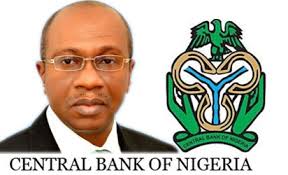The President of the National Council of Managing Directors of
Licensed Customs Agents(NCMDLCA) Mr Lucky Amiwero has blamed the
Federal Government for the sharp drop in the level of imports into
Nigeria in recent times.
He said that government was responsible for the anomaly through the
fiscal and monetary policies of the Federal Ministry of Finance and
the Central Bank of Nigeria (CBN) which have made tariff on goods
including rice to be prohibitive and which has made it impossible for
importers to have access to foreign exchange a t the official rate
for importation of goods.
Delivering a paper in Lagos on Monday on ‘Concept of Concession and
Component of Port Regulation’ at a three day seminar he organized for
journalists of the newly formed Federated Maritime Media Chapel(
FMMC) of the Nigerian Union of Journalists(NUJ) , he said government
must take measures to make FOREX available to shippers to boost
importation.
According to him, 70 per cent of the traffic that is expected to be
coming into Nigeria is being lost because of cash crunch , high cost
of funds and the frequent fluctuating nature of the naira in relation
to other major currencies regardless of the fact that the local
currency has started to gain some ground over the dollar among other
currencies.
Amiwero explained that even with the small gains the naira has been
making over the dollar , with one dollar exchanging for about N380 at
the parallel market , it is still difficult for any importer to
purchase FOREX at that rate , import goods with the money and be able
to make any tangible profit.
The NMDLCA President stated that it was an irony that government
expected the seaport concessionaires to pay it royalties which is
based on the level of throughput that they receive in their terminals
, but has not enunciated policies that would make it easy for cargoes
to come into the country, and thus facilitate payment of government
dues by the terminal operators..
He stated that the ban placed on the importation of rice through the
border posts by the Federal Government late last year would have been
an advantage for the seaports, but pointed out that this has not been
so due to the very high tariff of 60 per cent imposed on the
importation of the product and for the fact that it is one of the 41
items on which importers cannot access FOREX through the official
market..
Amiwero said that due to the problem of very low traffic at the
seaports in recent times , the concessionaires have been finding it
very difficult to survive , a development he stated had made most of
them to retrench their workforce and compromised their operations in
so many ways.
The Eyis Resources President however said that the concessionaires
current fate was due to the fact they were not proactive when they
were signing the concession agreement , adding that they would have
made government to introduce some clauses into the agreement which
would have protected them against the problem of low traffic and
government’s unfavorable policies.
He said due to the fact that the seaports have been dry for lack of
cargoes, it has been impossible for the Nigerian Ports Authority ,
Nigerian Maritime Administration and Safety Agency(NIMASA) and the
Nigerian Customs Service (NCS) , which government rely for revenue to
meet targets and remit money to the coffers of the State.
The revered Customs agent informed that in as much as government
through the CBN is trying to shore up Nigeria’s foreign external
reserves through conservation of FOREX , it would still l need to make
it easy for importers to access FOREX for the importation of essential
goods and raw materails required by manufacturers for production.
However, he defines concession as temporary form of privatization
explaining that concession agreement is a series of contract that
defines the relationship between government and private sector
regarding the right to exploit land and facilities as well as the
obligation to construct port infrastructure and superstructure.
According to him, the four elements of concession include
infrastructure and superstructure, , labor, traffic and tariff while
the tool for implementing privatization are Lease, ,Concession, BOT
Schemes , Contract Out/ Management Contract and full privatization.
He however said that there was a strong public interest in ensuring
that Nigerian ports operate efficiently and safely, that fair
services are provided so that ports can support and foster economic
development locally and internationally.
